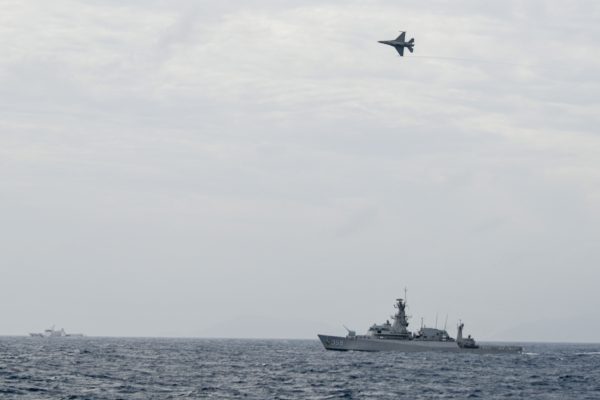COC negotiations have already been delayed a year due to the COVID-19 pandemic. Indonesia had proposed hosting negotiations in person this July, but due to the worsening second wave of COVID-19 in Jakarta, it will was postponed. It is unlikely that the COC will meet previously expected deadlines and conclude later this year. As Evan Laksmana argued, ‘parties should create a high-quality guideline rather than rushing through some artificial timeline proposed by China’.
Even though the substance of the negotiations is confidential, there seems to be at least four important legal issues that must be considered and addressed going forward.
First, firm agreement needs to be established on the geographic scope of the COC. It is important that the COC be limited to legitimate overlapping claims under international law. All negotiating parties should propose their claimed area based on the United Nations Conventions on the Law of the Sea (UNCLOS), including the maximum claim for exclusive economic zones being 200 nautical miles from baseline.
The COC should not negotiate any claim that is not legal under international law, including under UNCLOS. Any claim based on a historical basis not recognised under UNCLOS should be unacceptable, including China’s nine-dash line, which the 2016 Permanent Court of Arbitration tribunal ruled as illegal. The COC’s scope will be important to avoid formalising any claim that has already been ruled illegal.
Second, whether the COC is legally binding on parties is the second significant issue. The COC will be more effective if all parties consider it to be a legally binding document. This will create certainty and provide a clear dispute settlement mechanism for violations. To agree upon a legally binding document will not be easy. Some claimants would prefer the COC to serve more as a guideline rather than as a legally binding document.
Third, regardless of whether the COC becomes legally binding, it will be crucial to build monitoring and compliance mechanisms to ensure its effectiveness. The success of the COC should be measured by the extent to which the COC is adhered to by all parties.
The COC could establish a body that has the authority to gather non-compliance information. This independent body would need to consist of representatives of all parties to be trusted and report regularly on COC compliance.
Establishing such a body will involve decisions on who can report information regarding non-compliance, including wherther civil society, non-governmental organisations and fishermen from any state can report directly to the body, or whether access will be limited to government officials.
Fourth, the COC should also have a dispute settlement mechanism. Disputes should be expected and could surround interpretations of the agreement, or the implementation and application of obligations under the agreement. Most significant treaties have a dispute settlement process, including at least an agreement that parties should attempt bilateral negotiations before initiating more formal and in-built dispute settlement mechanisms.
The COC can choose from many existing international forums to settle disputes between states, such as the International Court of Justice and the Permanent Court of Arbitration in The Hague, or the International Tribunal for the Law of the Sea in Hamburg. Another issue is whether the dispute settlement mechanism should be compulsory. Some international treaties such as UNCLOS have a mandatory dispute settlement mechanism for all parties.
As the South China Sea COC negotiations move forward, it is important that the fundamental legal issues are considered. The peace and security of the region is at stake.
Aristyo Rizka Darmawan is a Lecturer in International Law at the Center for Sustainable Ocean Policy, University of Indonesia.

